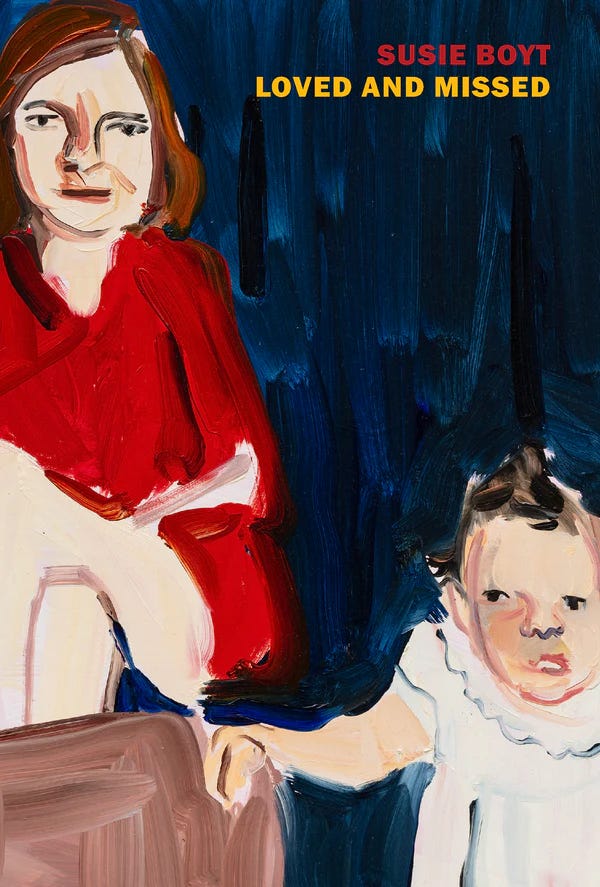When I dreamed up my Worm School course last spring, I knew from the beginning that I wanted to include a remarkable passage from a novel I’d just finished reading, featuring the narrator’s off-the-cuff life advice to herself, to her students, to her new granddaughter, to the universe. It seemed to me that there was more wisdom in this one paragraph than in anything I’d read in ages—but then I never found an appropriate place to squeeze it in! So I thought I’d share it now.
The book is Loved and Missed by the British novelist Susie Boyt, published in the UK in 2021 and Stateside two years later. (Thanks, once again, to my brilliant book club for getting this to the top of my pile.) It’s the story of a London schoolteacher in her early fifties—the narrator, Ruth—who is semi-estranged from her daughter, Eleanor, who has a longstanding, pretty severe drug problem. When Eleanor gives birth to her first child, Ruth brazenly maneuvers herself—I won’t spoil the details—to become the baby’s primary caretaker. And the novel unfolds from there.
If the premise sounds a bit bleak, the book is actually so buoyant: You are carried along on Ruth’s hopeful gamble that this could work, maybe—that if she can just approach things in the right spirit, the universe might allow her to get away with something, just this once.
You get a taste of that spirit in this passage. Here, Ruth has been admiring her new charge, the infant Lily, when she thinks, momentarily, of the fact that Eleanor was almost certainly using drugs during the pregnancy, and she has a spike of anxious rage that she tries to tamp down with this magnificent self-pep-talk slash sermon slash philosophy of life:




